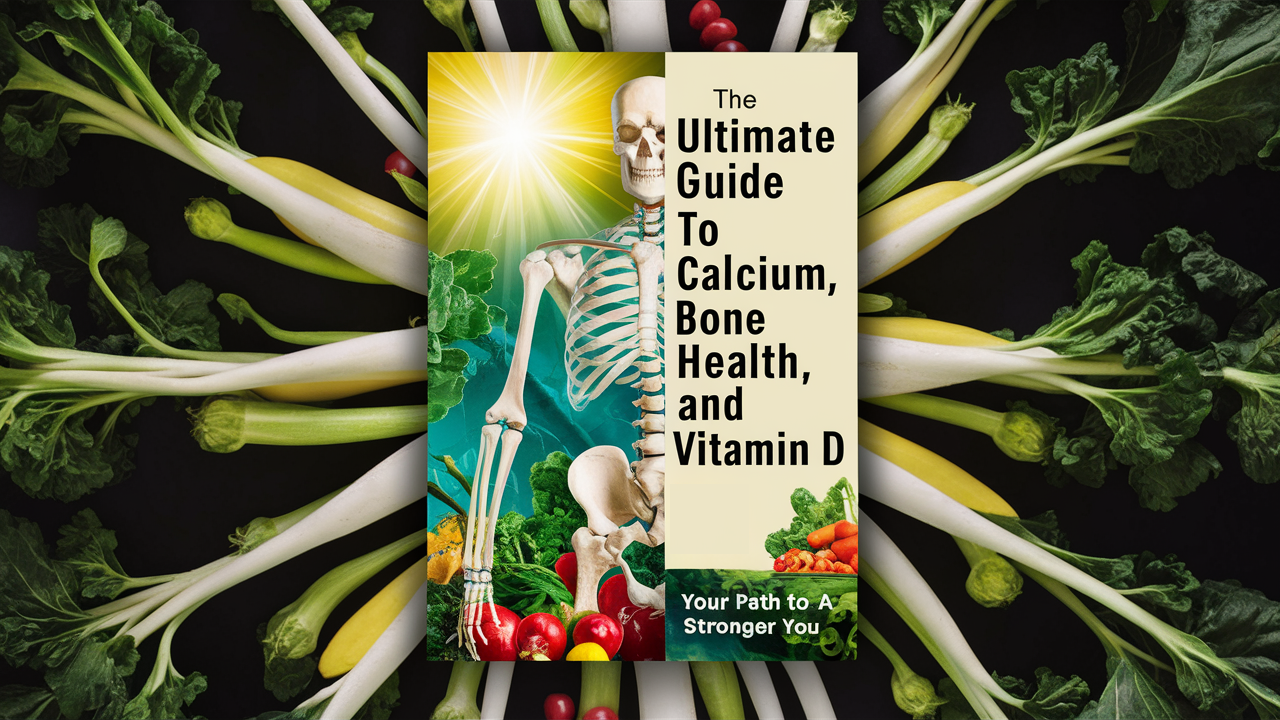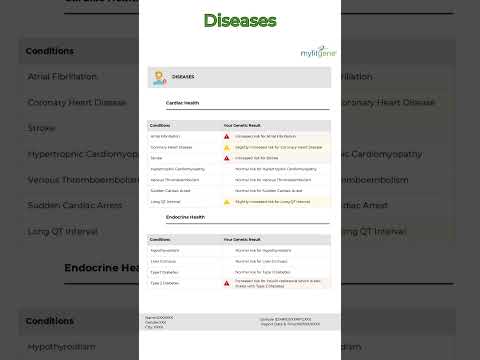मजबूत और स्वस्थ हड्डियों को बनाए रखना समग्र स्वास्थ्य के लिए महत्वपूर्ण है। जैसे-जैसे हमारी उम्र बढ़ती है, हमारी हड्डियाँ अधिक कमज़ोर हो सकती हैं, जिससे हड्डियों के स्वास्थ्य को बनाए रखने वाले पोषक तत्वों पर ध्यान देना ज़रूरी हो जाता है। इस प्रक्रिया में कैल्शियम और विटामिन डी दो प्रमुख भूमिका निभाते हैं। इस व्यापक गाइड में, हम यह पता लगाएंगे कि ये पोषक तत्व एक साथ कैसे काम करते हैं, एक स्वस्थ आहार का महत्व, और कैसे मैपमायजीनोम द्वारा मायफ़िटजीन आपकी हड्डियों के स्वास्थ्य को अनुकूलित करने के लिए व्यक्तिगत जानकारी प्रदान कर सकता है।
हड्डियों के स्वास्थ्य में कैल्शियम की भूमिका
कैल्शियम एक महत्वपूर्ण खनिज है जो मजबूत हड्डियों और दांतों के निर्माण और रखरखाव में महत्वपूर्ण भूमिका निभाता है। हमारे शरीर में लगभग 99% कैल्शियम हड्डियों और दांतों में जमा होता है, जो संरचनात्मक सहायता प्रदान करता है। शेष 1% रक्त, मांसपेशियों और अन्य ऊतकों में पाया जाता है जहाँ यह मांसपेशियों के संकुचन, रक्त के थक्के और तंत्रिका संचरण जैसे विभिन्न शारीरिक कार्यों में मदद करता है।
आपको कितने कैल्शियम की आवश्यकता है?
कैल्शियम की अनुशंसित दैनिक खुराक उम्र और लिंग के अनुसार अलग-अलग होती है। यहाँ सामान्य दिशा-निर्देश दिए गए हैं:
- बच्चे (1-8 वर्ष): 700-1,000 मिलीग्राम
- किशोर (9-18 वर्ष): 1,300 मिलीग्राम
- वयस्क (19-50 वर्ष): 1,000 मिलीग्राम
- 50 से अधिक उम्र की महिलाएं और 70 से अधिक उम्र के पुरुष: 1,200 मिलीग्राम
कैल्शियम के स्रोत
हड्डियों के स्वास्थ्य को बनाए रखने के लिए अपने आहार में कैल्शियम युक्त खाद्य पदार्थों को शामिल करना आवश्यक है। कैल्शियम के कुछ बेहतरीन स्रोतों में शामिल हैं:
- डेयरी उत्पाद: दूध, पनीर और दही
- पत्तेदार हरी सब्जियाँ: केल, ब्रोकोली और बोक चोय
- खाने योग्य हड्डियों वाली मछलियाँ: सार्डिन और सैल्मन
- फोर्टिफाइड खाद्य पदार्थ: संतरे का जूस, अनाज और पौधे आधारित दूध के विकल्प
विटामिन डी: धूप का विटामिन
विटामिन डी आंतों में कैल्शियम के अवशोषण के लिए आवश्यक है। पर्याप्त विटामिन डी के बिना, आपका शरीर कैल्शियम को प्रभावी ढंग से अवशोषित नहीं कर सकता है, चाहे आप कितना भी कैल्शियम का सेवन करें। यह विटामिन शरीर द्वारा तब निर्मित होता है जब त्वचा सूर्य के प्रकाश के संपर्क में आती है, इसलिए इसे "धूप का विटामिन" उपनाम दिया गया है।
तुम्हें कितने विटामिन की ज़रूरत है?
विटामिन डी का अनुशंसित दैनिक सेवन भी आयु के अनुसार भिन्न होता है:
- शिशु (0-12 महीने): 400 IU (10 mcg)
- बच्चे (1-18 वर्ष): 600 IU (15 mcg)
- वयस्क (19-70 वर्ष): 600 IU (15 mcg)
- 70 वर्ष से अधिक आयु के वयस्क: 800 IU (20 mcg)
विटामिन डी के स्रोत
आप विटामिन डी को सूर्य के प्रकाश, भोजन और पूरक आहार के माध्यम से प्राप्त कर सकते हैं। कुछ स्रोतों में शामिल हैं:
- सूर्य का प्रकाश: सप्ताह में कई बार 10-30 मिनट धूप में बिताने से आपके शरीर को पर्याप्त विटामिन डी बनाने में मदद मिल सकती है।
- वसायुक्त मछली: सैल्मन, मैकेरल और टूना
- फोर्टिफाइड खाद्य पदार्थ: दूध, संतरे का जूस और अनाज
- पूरक: विटामिन डी के पूरक बिना डॉक्टर की पर्ची के उपलब्ध हैं और यदि आपको सूर्य के प्रकाश और भोजन से पर्याप्त मात्रा में विटामिन डी नहीं मिल रहा है तो ये आपकी मदद कर सकते हैं।
स्वस्थ आहार का महत्व
संपूर्ण स्वास्थ्य और तंदुरुस्ती के लिए संतुलित आहार बहुत ज़रूरी है। हड्डियों के स्वास्थ्य के लिए, कैल्शियम और विटामिन डी से भरपूर खाद्य पदार्थों को शामिल करना विशेष रूप से महत्वपूर्ण है। हालाँकि, मैग्नीशियम, फॉस्फोरस और विटामिन के जैसे अन्य पोषक तत्व भी मज़बूत हड्डियों को बनाए रखने में भूमिका निभाते हैं।
हड्डियों को स्वस्थ रखने वाले आहार के लिए सुझाव
- अपने भोजन को संतुलित करें : सुनिश्चित करें कि प्रत्येक भोजन में विभिन्न प्रकार के पोषक तत्व शामिल हों, जैसे प्रोटीन, स्वस्थ वसा और कार्बोहाइड्रेट, साथ ही कैल्शियम और विटामिन डी युक्त खाद्य पदार्थ।
- हाइड्रेटेड रहें : भरपूर पानी पीने से समग्र स्वास्थ्य को लाभ मिलता है और पोषक तत्वों के परिवहन में मदद मिलती है।
- प्रसंस्कृत खाद्य पदार्थों का सेवन सीमित करें : प्रसंस्कृत खाद्य पदार्थों में सोडियम की मात्रा अधिक और आवश्यक पोषक तत्व कम हो सकते हैं। जब भी संभव हो, संपूर्ण खाद्य पदार्थों का सेवन करें।
- नियमित व्यायाम करें : वजन उठाने वाले व्यायाम जैसे चलना, जॉगिंग और शक्ति प्रशिक्षण हड्डियों के घनत्व को बढ़ाने और बनाए रखने में मदद कर सकते हैं।
MapmyGenome द्वारा MyFitGene के साथ व्यक्तिगत जानकारी
जबकि स्वस्थ आहार और जीवनशैली हड्डियों के स्वास्थ्य को बनाए रखने के लिए महत्वपूर्ण हैं, आनुवंशिक कारक भी महत्वपूर्ण भूमिका निभाते हैं। MapmyGenome द्वारा MyFitGene एक आनुवंशिक परीक्षण है जो आपकी फिटनेस क्षमता, पोषण संबंधी आवश्यकताओं और हड्डियों के स्वास्थ्य सहित समग्र स्वास्थ्य के बारे में व्यक्तिगत जानकारी प्रदान करता है।
माईफिटजीन कैसे काम करता है
- सरल नमूना संग्रहण : गाल के स्वाब का उपयोग करके अपना डीएनए नमूना एकत्र करें और इसे प्रयोगशाला में भेजें।
- व्यापक विश्लेषण : स्वास्थ्य, पोषण और फिटनेस से संबंधित विभिन्न आनुवंशिक मार्करों का आकलन करने के लिए नमूने का विश्लेषण किया जाता है।
- व्यक्तिगत रिपोर्ट : अपनी आनुवंशिक प्रोफ़ाइल के अनुरूप विस्तृत रिपोर्ट प्राप्त करें, जिसमें हड्डियों के स्वास्थ्य को अनुकूलित करने के लिए सिफारिशें भी शामिल हैं।
माईफिटजीन के लाभ
- अपने आनुवंशिक जोखिम को समझें : हड्डियों के स्वास्थ्य को प्रभावित करने वाली स्थितियों के लिए किसी भी आनुवंशिक प्रवृत्ति की पहचान करें।
- अपने आहार और व्यायाम को अनुकूलित करें : अपनी आनुवंशिक संरचना के आधार पर आहार और व्यायाम के लिए व्यक्तिगत सिफारिशें प्राप्त करें।
- सक्रिय स्वास्थ्य प्रबंधन : अपने आनुवंशिक प्रोफाइल के अनुरूप सूचित निर्णय लेकर अपने स्वास्थ्य पर नियंत्रण रखें।
वास्तविक कहानियाँ, वास्तविक प्रभाव
रवि से मिलिए: मजबूत हड्डियों की यात्रा
रवि, एक 45 वर्षीय सॉफ्टवेयर इंजीनियर, कम अस्थि घनत्व और लगातार फ्रैक्चर से जूझ रहा था। MyFitGene परीक्षण लेने के बाद, उन्होंने पाया कि उनमें कैल्शियम अवशोषण कम होने की आनुवंशिक प्रवृत्ति थी। इस जानकारी से लैस, रवि ने अपने आहार में अधिक कैल्शियम और विटामिन डी युक्त खाद्य पदार्थ शामिल करने के लिए समायोजन किया और वजन बढ़ाने वाले व्यायाम की दिनचर्या शुरू की। समय के साथ, उनकी अस्थि घनत्व में काफी सुधार हुआ।
विशेषज्ञ की राय
प्रसिद्ध एंडोक्राइनोलॉजिस्ट डॉ. मीरा शाह कहती हैं, "व्यक्तिगत स्वास्थ्य सेवा के लिए आनुवंशिक परीक्षण एक बड़ा परिवर्तनकारी कदम हो सकता है। अपनी आनुवंशिक प्रवृत्तियों को समझने से आप बेहतर स्वास्थ्य की दिशा में सक्रिय कदम उठा सकते हैं, जिसमें हड्डियों के स्वास्थ्य को बेहतर बनाना भी शामिल है।"
निष्कर्ष
लंबे, सक्रिय और स्वस्थ जीवन के लिए हड्डियों का स्वास्थ्य बनाए रखना बहुत ज़रूरी है। कैल्शियम और विटामिन डी का पर्याप्त सेवन सुनिश्चित करके, संतुलित आहार का पालन करके और नियमित व्यायाम करके आप अपनी हड्डियों को मज़बूत बनाए रख सकते हैं। इसके अलावा, MapmyGenome द्वारा MyFitGene से व्यक्तिगत जानकारी आपको अपने आनुवंशिक मेकअप के आधार पर अपना दृष्टिकोण तैयार करने में मदद कर सकती है, जिससे आपको इष्टतम हड्डी स्वास्थ्य का सबसे अच्छा मौका मिल सकता है।
क्या आप अपनी आनुवंशिक क्षमता को उजागर करने और अपनी हड्डियों के स्वास्थ्य पर नियंत्रण पाने के लिए तैयार हैं? आज ही MapmyGenome पर जाएँ और जानें कि कैसे MyFitGene आपको स्वस्थ और मज़बूत बनने की यात्रा में मार्गदर्शन कर सकता है।






















